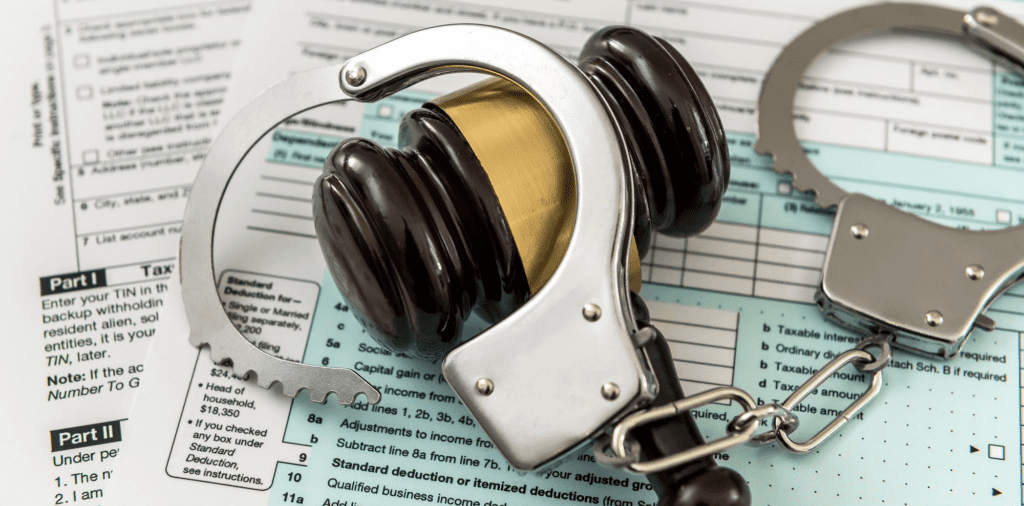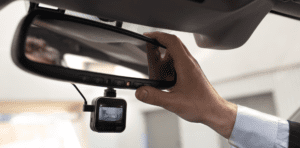Compare cheap car insurance
✔ Compare cheap car insurance quotes
✔ Over 110 insurance providers
✔ Get a quote in minutes
✔ Save up to £504*
Getting car insurance can be challenging if you have a criminal conviction. However, it’s not an insurmountable hurdle.
- How Does a Criminal Record Affect Car Insurance?
- Do I Need to Declare Criminal Convictions?
- Do I Need to Inform My Insurance Provider About a Conviction During My Policy Term?
- How Can I Get Cheaper Convicted Driver Car Insurance?
- How Can I Get Car Insurance with a Criminal Conviction?
- Frequently asked questions
When you compare car insurance options with us, we help you find affordable and suitable cover. Despite potentially higher costs, buying insurance is still possible.
How Does a Criminal Record Affect Car Insurance?
The Impact of a Criminal Record
Having a criminal record can significantly influence the cost and accessibility of car insurance. Insurance companies typically view drivers with criminal convictions as high-risk, leading to increased premiums.


This is due to the perceived likelihood of future claims. Moreover, some insurers might be hesitant or even refuse to provide cover to individuals with a criminal record, making the search for insurance more challenging.
Options for Convicted Drivers
If you’re a convicted driver struggling to secure car insurance from standard providers, don’t lose hope. There are specialist insurance providers who cater specifically to individuals with criminal convictions.
These specialists are more adept at assessing the unique risks and circumstances of convicted drivers, thereby offering more tailored and sometimes more affordable policies.
Specific Conviction Types and Insurance
Insurance for Drivers with Drink Driving Convictions
A DR10 penalty, given for drink driving offences, can severely limit your options for car insurance. Many insurers might refuse cover entirely. Those who do offer insurance will likely impose higher premiums and voluntary excesses. This is because a DR10 conviction indicates a significant risk factor to insurers.
Insurance for Disqualified Drivers
Finding car insurance after a disqualification poses its own set of challenges. The pool of insurers willing to provide cover is smaller, and the quotes you receive are likely to be costly. The high rates reflect the elevated risk associated with insuring someone who has been disqualified from driving.
Car Insurance for Drivers with Points
Drivers with penalty points on their licence can also expect increased insurance costs. However, the impact on premiums is generally less severe compared to drivers with criminal convictions. The degree to which your premiums are affected depends on the number and severity of the points accrued.
Key Takeaway
A criminal record can have a profound impact on your car insurance options and costs. Each type of conviction or penalty carries its implications and challenges. It’s crucial to explore all available options, including specialist providers, to find a policy that suits your needs and budget.
How much can you save on your car insurance?
Do I Need to Declare Criminal Convictions?
Understanding Conviction Declaration
When it comes to informing your insurance provider about your criminal history, the distinction between spent and unspent convictions is crucial. It’s mandatory to disclose any unspent convictions.


These are the ones that are still visible on a basic criminal record check and can impact your insurance terms or eligibility.
Spent vs Unspent Convictions
Spent Convictions
Spent convictions are those which, after a certain period, are no longer required to be disclosed as they don’t appear on a basic criminal record check.
The Rehabilitation of Offenders Act provides clear guidelines on when different types of convictions become spent.
Once a conviction is spent, you’re no longer legally obliged to disclose it to your insurance provider.
Unspent Convictions
Conversely, unspent convictions must be declared. Failing to disclose these could lead to serious consequences.
For example, if you need to make a claim and your insurer discovers an undisclosed unspent conviction, they may refuse to pay out.
This not only leaves you with potential expenses but could also make getting insurance in the future more difficult and expensive.
Additional Disclosures
Cautions, Reprimands, and Final Warnings
Cautions, reprimands, and final warnings are typically considered spent immediately and do not need to be declared to your insurance provider. However, this does not extend to driving offences.
Driving Offences
Even if they are minor and resulted in a fixed penalty notice rather than a court conviction, driving offences like speeding must be disclosed. Insurance providers consider these when assessing your risk profile and determining your premium.
Seeking Guidance
If you’re unsure about the status of your convictions or need advice on how to proceed, consulting a guide from Unlock — a charity dedicated to helping individuals with criminal records — can be invaluable.
They offer comprehensive information on how convictions, both spent and unspent, interact with insurance requirements.
Key Takeaway
Being transparent about your criminal record, particularly unspent convictions, is essential when dealing with car insurance. Understanding the nuances of what needs to be disclosed can protect you from invalidated policies and future insurance complications.
How much can you save on your car insurance?
Do I Need to Inform My Insurance Provider About a Conviction During My Policy Term?
General Rule for Declaring Convictions
If you are currently holding a car insurance policy and subsequently receive a conviction, whether you need to inform your insurance provider immediately depends on the terms and conditions of your policy.


In many cases, insurers don’t require notification of a new conviction until the policy is up for renewal. However, this can vary widely between different insurance companies.
Specific Scenarios
Driving Bans
The situation changes significantly if your conviction results in a driving ban. In this case, you must inform your insurance provider immediately.
A driving ban can have a direct impact on your policy’s validity. Some insurers might opt to cancel your policy in light of the ban, while others might adjust the terms or premiums.
Serious Offences
For serious offences, especially those that could significantly affect your risk profile (like dangerous driving or drink-driving convictions), it’s advisable to check your policy documents or contact your insurer for guidance.
Even if not required, prompt disclosure can prevent complications later, especially when making claims.
The Importance of Reading Policy Terms
It is crucial to thoroughly understand the terms and conditions of your car insurance policy. These documents will provide clear guidelines on what needs to be disclosed and when. If there’s any uncertainty, it’s always better to err on the side of transparency and inform your insurer.
Potential Consequences of Non-Disclosure
Failing to inform your insurer about a conviction, particularly if your policy terms require it, can lead to serious repercussions. This could include the invalidation of your policy, which means any claims you make could be denied.
Moreover, non-disclosure can lead to difficulties in obtaining future insurance, often at higher premiums.
Key Takeaway
The need to inform your insurance provider about a conviction during your policy term varies depending on the specifics of your policy and the nature of the offence.
Always refer to your policy documents and, when in doubt, contact your insurer for clarification. Transparent communication is key to ensuring your insurance cover remains valid and effective.
How much can you save on your car insurance?
How Can I Get Cheaper Convicted Driver Car Insurance?
For drivers with convictions, finding affordable car insurance can be a challenge, but there are ways you can potentially lower your premiums.


Telematics Insurance
- Telematics (Black Box) Insurance: This innovative option involves the installation of a telematics device, often referred to as a ‘black box’, in your vehicle. This device monitors your driving habits, such as speed, braking, and time of driving. Demonstrating safe and responsible driving through this system can lead to reduced premiums, as it provides tangible evidence of your driving behaviour to the insurer.
Increasing Voluntary Excess
- Voluntary Excess Adjustment: Your car insurance policy typically includes a compulsory excess and an option for voluntary excess. By agreeing to pay a higher voluntary excess, you reduce the financial risk for the insurer in the event of a claim, which can result in lower premium costs. However, it’s important to ensure that the excess amount is affordable for you in case you need to make a claim.
Mileage Consideration
- Limiting Mileage: Insurers often correlate the risk of accidents with the amount of time spent on the road. By reducing your annual mileage, you can lower this perceived risk. Inform your insurer if you’re driving significantly fewer miles, as this could lead to a decrease in your premiums.
Enhancing Vehicle Security
- Improved Vehicle Security: Implementing additional security measures for your vehicle, such as installing an immobiliser, alarm system, or ensuring secure parking (like off-street or in a garage), can be viewed favourably by insurance providers. Enhanced security reduces the risk of theft and vandalism, potentially leading to lower insurance costs.
Effective Comparison Shopping
When it’s time to renew your insurance, it’s crucial not to automatically accept the renewal quote from your current provider. Instead, take the time to compare policies from various insurers.
This comparison can uncover more competitive rates and policies more tailored to your situation as a convicted driver.
There are many comparison websites like Comparoo and tools available that can simplify this process, offering a range of options and prices from different insurance companies.
Key Takeaway
While convicted driver car insurance can be more expensive, there are several ways to help reduce the cost. From opting for telematics insurance to increasing vehicle security, these methods can lead to more favourable premium rates.
Remember, thorough comparison shopping at renewal time is key to finding the best deal that meets your specific needs and circumstances.
How much can you save on your car insurance?
How Can I Get Car Insurance with a Criminal Conviction?
Using Comparoo to Compare
Starting with our car insurance comparison service is a practical first step in finding suitable cover if you have a criminal conviction. These services provide a platform where you can input details about yourself and your vehicle, ensuring that you get quotes tailored to your specific circumstances.


Declaring Convictions
During this process, it’s essential to declare any unspent criminal convictions. Transparency about your conviction is crucial as it affects the types of policies available to you and their terms.
While you may encounter a more limited selection of policies, comparison services can help by presenting the options that are available and appropriate for your situation.
Seeking Specialist Providers
Specialist Insurance Providers
If you find it challenging to secure car insurance through standard channels, turning to specialist insurance providers can be beneficial. These providers are experienced in dealing with unique cases, including drivers with criminal convictions, and often offer more flexible policies that can cater to your specific needs.
Utilising Support Resources
Unlock: This charity, dedicated to supporting individuals with convictions, offers a list of specialist insurance brokers who are knowledgeable about the challenges faced by people in your situation. They can provide guidance and assist in finding insurance providers willing to offer cover.
British Insurance Brokers’ Association (BIBA): Contacting BIBA can also be a wise move. As a professional association, they have access to a wide range of insurance brokers, including those who specialise in high-risk cases or non-standard insurance, making them a valuable resource in your search for car insurance.
Key Takeaway
Obtaining car insurance with a criminal conviction can be more challenging, but it’s not impossible. Using a comparison service like Comparoo to start your search, being upfront about any unspent convictions, and exploring options with specialist providers or through supportive organisations like Unlock and BIBA, can significantly improve your chances of finding a suitable and affordable car insurance policy.
How much can you save on your car insurance?
Frequently asked questions
When it comes to car insurance policies, it’s essential to declare if any named drivers on your policy have unspent criminal convictions.
This information is necessary for your insurance provider to accurately assess the risk and determine the correct premium for your policy. Failure to disclose such crucial details can lead to complications or invalidation of the policy.
It’s important to understand that naming someone else as the main driver on your car insurance when it’s not true is not a legal option.
You might think about listing a friend or relative with a clean driving record and no convictions as the primary driver to reduce costs, but this practice is called ‘fronting‘.
Fronting is considered a form of insurance fraud and is illegal. Engaging in this deceit not only violates insurance regulations but can also lead to serious legal consequences.
If discovered, it could result in invalidated insurance, difficulty in obtaining future insurance, and potential legal repercussions. Always ensure that the person who drives the car the most is correctly listed as the main driver.
The duration for which a criminal conviction remains on your record varies based on the severity of the sentence and your age at the time of conviction. This duration determines when a conviction becomes ‘spent‘, meaning it no longer appears on a basic criminal record check.
Convictions with Shorter Sentences
If you received a prison sentence of under six months, the conviction typically becomes spent two years after the completion of your sentence. This is under the assumption that no further offences are committed during this period.
Convictions with Longer Sentences
In contrast, for more severe cases where the sentence is over four years, the conviction remains on your record indefinitely. It will always be visible on criminal record checks, regardless of the time that has elapsed since the end of the sentence.
Checking the Status of Your Conviction
If you’re uncertain about whether your conviction is spent or not, it’s possible to check its status. Various resources and legal services can provide clarity on this matter, helping you understand how your criminal record may impact aspects of your life, such as employment and insurance.
If you find yourself in a situation where standard insurers refuse to provide car insurance due to your conviction, don’t lose hope. Your best course of action is to seek out specialist insurance providers.
These providers focus specifically on offering car insurance to individuals with convictions and are more adept at understanding and accommodating your unique circumstances.
To find a suitable provider, consider contacting Unlock (the National Association of Reformed Offenders). This organisation can provide a comprehensive list of brokers who specialise in insurance for convicted drivers. These brokers have the expertise and knowledge to help you find a policy that meets your needs.
If you’re faced with a situation where your insurance provider declines your claim, particularly on grounds of non-disclosure or misrepresentation, and you believe this decision is unjust, there are steps you can take.
Filing a Complaint with the Insurance Provider
Initially, you should register a complaint directly with your insurance provider. It’s crucial to clearly state your case and why you believe the refusal to pay the claim is unfair.
Escalating to the Financial Ombudsman Service
If, after eight weeks, you’re dissatisfied with the response or resolution offered by your insurance provider, you have the right to escalate the matter to the Financial Ombudsman Service (FOS).


The FOS offers an impartial dispute resolution service, and there is no cost for you to use this service. They will review your case independently and provide a judgment that the insurance provider must adhere to if you accept the decision.
Understanding Non-disclosure and Misrepresentation
Non-disclosure refers to the failure to provide important information when requested by your insurance provider. It’s vital to be upfront and honest in all your dealings with your insurer to avoid any issues with claims.
Misrepresentation occurs when the information provided to the insurance provider is inaccurate or false. For example, lying about the details of your conviction would constitute misrepresentation. It’s important to ensure that all information given is correct and truthful to avoid potential claim refusals.
If you find your insurance claim refused due to issues like non-disclosure or misrepresentation and disagree with this decision, pursuing a formal complaint and potentially involving the Financial Ombudsman Service are viable options.
Remember, accuracy and honesty in all your insurance dealings are essential to avoid such complications.
Yes, getting temporary car insurance as a convicted driver is possible, although the availability and terms depend on the nature of your convictions and when they occurred.
These include having no more than six penalty points on your licence in the past two years, and not having faced any driving disqualification in the last five years.
It’s important to note that each insurer has their own set of criteria, so while one may offer temporary cover, another might not, based on their assessment of the risk associated with your specific convictions.
Even if you are disqualified from driving, you are still required to insure your car unless you have registered it as off the road with a Statutory Off Road Notification (SORN). This legal requirement applies regardless of your driving status.
The Role of the Motor Insurance Bureau (MIB) and DVLA
The Motor Insurance Bureau (MIB) frequently checks the DVLA’s records against those on the Motor Insurance Database (MID). This process is to identify vehicles that are not insured. If your car is not insured and hasn’t been declared off the road with a SORN, the authorities will likely discover this.
Potential Consequences of Non-Compliance
If you’re found to own an uninsured vehicle that’s not declared off the road, you will initially receive a notification letter urging you to rectify the situation. Ignoring this letter can lead to significant penalties:
- A fixed penalty fine of £100 is the immediate consequence of non-compliance.
- If the matter escalates to court, you could face fines of up to £1,000.
- Additionally, there’s a risk that the uninsured vehicle could be clamped, seized, or even destroyed.
The National Driving Offender Retraining Scheme (NDORS) offers certain drivers who have committed road traffic offences the opportunity to attend a training course instead of facing prosecution.
While participants usually need to pay for these courses, they provide an alternative to receiving fines or having penalty points added to their licence. Importantly, these courses aim to improve driving skills and encourage safer driving behaviour.
Types of Courses in NDORS
Safe and Considerate Driving Course
- This course is recommended for drivers who have been involved in an accident. It focuses on enhancing driving skills and promoting safer driving practices.
National Speed Awareness Course
- Tailored for drivers caught speeding, this course aims to educate about the dangers of speeding and encourages adherence to speed limits.
National Rider Risk Awareness Course
- Specifically for motorcyclists who have committed a driving offence, this course concentrates on safe riding practices and awareness of road risks for motorcyclists.
What’s Driving Us? Course
- This course is designed for drivers who have committed multiple driving offences. It addresses behavioural aspects and decision-making processes while driving.
Your Belt Your Life Course
- Aimed at individuals stopped by the police for seatbelt-related offences, this course emphasises the importance of seatbelt safety.
Overall, the NDORS provides beneficial educational opportunities for drivers who have committed offences, with the overarching goal of improving road safety and reducing the likelihood of future offences.










